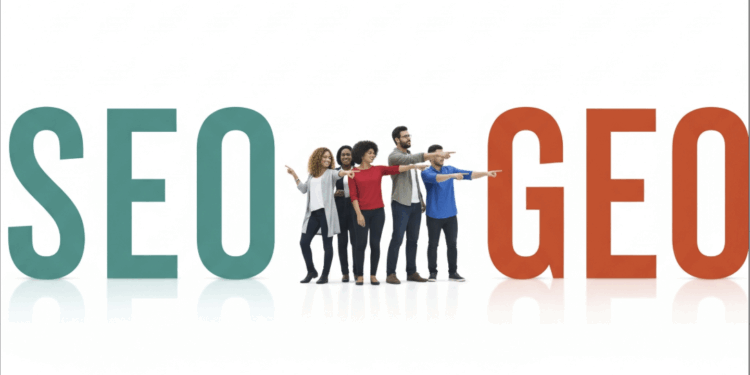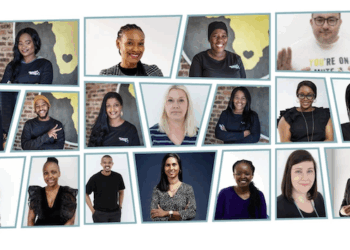For decades now, search engine optimisation (SEO) has been the way to get your website onto the top of Google search results. That’s how you’d get people to click on your link.
The marketing and communications industry has made a killing over the years, helping clients to optimise their digital presence to get onto that all-important first page of search results, preferably right at the top. This meant regularly publishing original and fresh content, plenty of linking, metatags and, of course, the bane of every content creative: keywords.
SEO has stood the test of time – until now, that is. When artificial intelligence, in the form of generative AI, recently rode into town, its days were instantly numbered. The new way to be seen online is called GEO: generative engine optimisation.
Where SEO has focused on attaining top search results, GEO is concerned with winning the conversation: influencing AI to talk about you and what you do in the text, images and videos it generates. In a positive way, of course.
In fact, many of us are already not even looking at Google’s search results anymore. These days, we’ll do a search and then most likely read the Gemini AI response at the top of the search results page – and maybe click on a link there. We often don’t even scroll down to see what other results there are, because Gemini already gave us what we wanted to know.
And it’s not just in Google search results that this matters. At Flow Communications, we’re delighted to discover that potential clients are finding us nowadays by asking generative AI to suggest a marketing and communications agency. Without GEO, we’d most likely never feature in an AI response.
The goal is no longer to get that click, thus. GEO is about getting your brand, information, products and services, and your point of view, directly into the AI’s answer to a prompt. It’s about being the AI’s source of “truth”.
How does GEO work?
We already know how generative AI models such as ChatGPT, Gemini, Perplexity, Claude, Copilot and how many others work: they trawl through huge amounts of information they were trained on (such as books, articles, websites and social media), and synthesise a response to your prompt.
GEO, simply, means making your content the most useful, appealing and trustworthy of all to them. This entails a few core AI principles:
- AI prioritises trust and authority: what Google terms ‘E-E-A-T’ – experience, expertise, authoritativeness and trust – is more important than ever. AI is trained to not make things up, which means it looks for authored, referenced content from reputable, expert sources
- AI thrives on structure and facts: because (dare I say it) AI is a machine, data that is structured and organised is easier to ‘read’. Headings, lists and tables are great. And it loves factual density – content with lots of verifiable information
- AI wants originality: it’s not really interested in how many times something is said; what’s much more important is who said it first – for example, in a research report or in a thought leadership article. For GEO, you want to be that primary source
So, how do you do GEO?
GEO actually goes against many of the things the online environment has become in recent years: generic and bland, unoriginal, unattributed, and either dishonest or plain wrong.
In some ways it’s not dissimilar from SEO: you still have to produce original content, pick your words carefully and structure your data.
But if you want to cleverly use AI – for example, with GEO – to promote your brand, you have to actually do things much better than before:
1. Create great content
You can’t just blast out a 500-word blog on a topic and think it’s good enough; instead, you have to create the best, most thorough and most factual content on a given topic – for example, a well-researched report, an original study or creative thought leadership.
And here’s a delicious irony: rather don’t use ChatGPT to write such canonical content for you. You’ll never achieve GEO, riding on others’ originality, because AI is also trained to pick up on AI content and downrank it.
2. Structure your content
Schema markup is a code that you insert into your website to help search engines understand your content and what’s important in it, and of course improve your SEO.
It’s great for GEO, too, because AI (as I’ve mentioned) loves structured data and factual content. Making your content easier for the machine to grasp and accurately use is only a benefit.
3. Answer questions
The humble FAQs section, too often a poorly executed afterthought on a website, really comes into its own with GEO. It’s a boon for AI looking for a quick, clear answer to a query.
4. Attribute your sources
Citing your sources will improve the credibility of your work for AI; attribution is, after all, a cornerstone of rigorous academic output for a reason.
Even better for your reputation is getting others to cite you as an authoritative source, confirming to AI that you are trustworthy and reliable.
5. Stick to the facts
Ensure that the factual information on your platform is always correct and up to date. Inaccurate data will result in AI flagging you as unreliable, which will in turn have a negative impact on your GEO.
What the future holds
Gemini is a clear example of how high-stakes the online marketing challenge is becoming.
Until recently, a Google search would only provide several potential “right” answers with links, yours hopefully uppermost among them. But because Gemini now frequently distils search results into a single, cohesive answer at the top of your results page, there are fewer potential ‘winners’ – and if you aren’t included in Gemini’s response, you effectively become invisible to the searcher.
We’ve been seeing this for a while: the Pew Research Center reported in March 2025 that Google results with a Gemini summary resulted in almost half as many user clicks on a link – 8% compared to 15% on a results page without a Gemini summary.
Being cited as the source in any AI-generated response – in other words, achieving GEO – is thus the way marketing success will be quantified in future, not how many clicks you get. To do that, apply E-E-A-T: generative AI will train itself on your data and information if it trusts that it is expert, original and authoritative.
Willem Steenkamp is a senior writer and editor at Flow Communications. He also writes and trains on aspects of AI.














